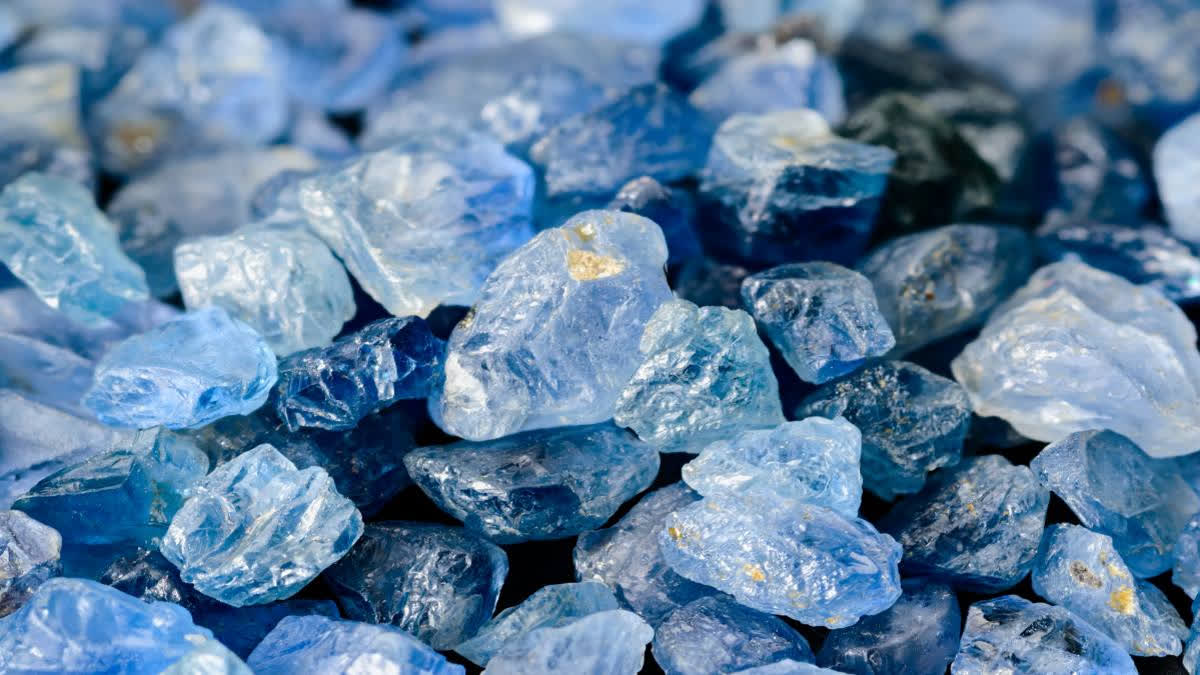A Cautionary Tale of Glamour, Greed, and Gemstone Fraud
The Glittering Trap: Kashmir Sapphire Scam Hits Hyderabad
In a scandal that stunned both gemstone circles and law enforcement officials, a prominent Hyderabad businessman and Nawab, Mir Firasath Ali Khan, was allegedly conned out of ₹3 crore by fraudsters posing as legitimate Kashmir sapphire traders. Lured by the reputation of Padder Valley sapphires, renowned for their unmatched brilliance and rarity, Khan believed he was securing a priceless deal. What he received instead were counterfeit necklaces, evaporating trust and wealth overnight.
Who Are the Accused?
The alleged masterminds behind the scam have been identified as:
| Name | Origin | Role in Scam |
|---|---|---|
| Mohammed Rayaz | Rajouri | Negotiator and front for the sapphire trade |
| Mohammed Taj Khan | Poonch | Claimed to represent miners from Kishtwar |
| Unnamed Associates | Srinagar | Logistics and money laundering |
How the Truth Came Out
Before transferring a second payment of ₹25 crore, Khan grew suspicious over delays and evasive behavior. Upon investigation:
- The sapphires had no gemological certification
- Some stones were identified as synthetic blue corundum
- Recipients of the money were traced to dubious accounts, used to purchase land and gold
Khan alerted the police, leading to a swift crackdown on the racket.
What the Police Recovered
- ₹62 lakh was immediately seized from accused accounts
- Several fake gemstone necklaces were confiscated
- Properties linked to the scam are under attachment proceedings
- Legal action initiated under Section 107 of the BNSS (Bharatiya Nagarik Suraksha Sanhita)
Police are also working with financial cybercrime units to trace diverted funds and potential cross-border transactions.
Why Kashmir Sapphires Are So Prized
Kashmir sapphires, found primarily in the Padder mines of Kishtwar, are hailed as some of the finest in the world. Their deep cornflower blue hue, velvety texture, and historical rarity have made them auction favorites and collector obsessions.
Estimated Market Value
- Authentic Kashmir Sapphire: ₹25 lakh–₹1.5 crore per carat
- Auction Sales: Christie’s sold one for $6 million
- Global Demand: Surging in UAE, UK, and Japan
Unfortunately, this also makes them a hotspot for fraud and forgery, often using synthetic replicas sourced from Thailand or Sri Lanka.
Victims Beyond the Headlines
Sources say the scam may be part of a larger racket, with targets in Delhi, Dubai, and Mumbai. Many victims fear stigma or reputational loss and stay silent.
A trader from Delhi revealed he lost ₹1.2 crore in a similar sapphire deal but never reported it due to “embarrassment and family pressure.”
Preventing Gemstone Scams: What Buyers Must Know
Trusted Practices
- Always demand gemological certification from reputed labs like GIA or IGI
- Verify sellers through government mining licenses
- Insist on physical inspection and third-party valuation
- Avoid large upfront transfers—use escrow services
- Cross-check dealer credentials via Gem & Jewellery Export Promotion Council (GJEPC)
Red Flags
- Claims of “royal” mining lineage
- Pressure to close the deal quickly
- Untraceable or offshore bank accounts
- Unavailability of gemstone under natural light for inspection
Bottom-Line: Glamour Without Scrutiny Is Risk
The tale of Mir Firasath Ali Khan is more than a personal tragedy—it’s a wake-up call for India’s luxury market. As counterfeiters grow more sophisticated, buyers must evolve too—demanding transparency, scientific certification, and legal safeguards. In a world obsessed with status symbols, real value lies in truth, not just brilliance.




